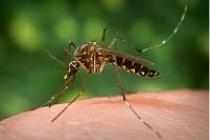
Source: County News Service
January 29, 2016 (San Diego) -- It is everywhere in the news — the Zika virus. It’s a mosquito-driven virus new to the Americas that has been virtually harmless to most people but also linked to a serious birth defect. It’s prompted travel warnings to Mexico and several South American and Central American countries, as well as anxious questions from the media and the public.
So what should you know about the Zika virus and San Diego County?
There’s No Reason To Panic. There are currently no local detections of the Zika virus in San Diego County. There were two cases reported here in recent years: one in 2014 and one in 2015. In both cases, the people contracted the virus when they visited tropical islands in the South Pacific and Indian Ocean. San Diego County public health officials said neither person needed to be hospitalized. The national Centers for Disease Control and Prevention (CDC) report there have been no locally-transmitted cases of Zika in the U.S. And there have been no Zika cases reported in the regions of Mexico bordering San Diego County.
Protect Yourself from Mosquitoes. Start by finding and dumping out any standing water in and around your homes so mosquitoes don’t have places to breed. San Diego County’s Vector Control program has been encouraging residents to protect themselves from mosquitoes since 2003, when another virus — the West Nile virus — showed up here. That is even more important this year because El Niño has brought increased rain and because the mosquitoes that can transmit the Zika virus like to live and breed in urbanized areas — including inside homes and backyards — and can breed in containers as small as a thimble. The San Diego County Environmental Health Department’s Vector Control Program routinely monitors and works to control mosquito populations, responds to complaints and eliminates mosquito breeding grounds.
Zika Virus
The CDC reports that only about 20 percent of people — one out of every five — who get infected with the Zika virus ever experience any illness. If people do get sick, their symptoms are usually mild and may include fever, rash, joint pain or conjunctivitis (red eyes). Symptoms typically begin two to seven days after being bitten by an infected mosquito. However, the CDC also reports that the Zika virus has been suspected to cause a severe birth defect — microcephaly, a condition where babies heads and brains are smaller than normal — in cases where mothers were infected during pregnancy. Their currently is no vaccine or treatment for Zika virus. The CDC has issued traveler’s warnings urging pregnant women not to travel to countries where Zika is present.
Mosquitoes
The mosquitoes known to transmit the Zika virus, primarily the Aedes aeqypti (yellow-fever mosquito), but also the Aedes albopictus (Asian tiger mosquito), are not native to San Diego. But they have been discovered here — the yellow-fever mosquito in 2014 and the Asian tiger mosquito in 2015.
These Aedes mosquitoes are different than the mosquito species native to San Diego County.
They’re smaller in size and have distinctive black and white markings. And unlike our native mosquitoes, they like to feed during daylight hours. They are known to be aggressive biters.
County officials said the public should continue to remember the “Prevent, Protect, Report” slogan that has guided its fight against West Nile virus.
Prevent mosquito breeding sites. Every week, dump out and clean containers that hold water inside and outside homes. Fill plant saucers with sand or fine gravel to water won’t form pools where mosquitoes can breed.
Protect yourself from mosquito bites. Wear long sleeves and pants when outdoors. Use insect repellent, preferably one containing DEET. Make sure the screens on your windows and doors are in good condition, do not have holes or tears, and are secured to keep insects out.
Report if you are being bitten by mosquitoes during daylight hours, or if you find mosquitoes that match the description of the yellow-fever mosquito or Asian tiger mosquito, by contacting the Vector Control Program at (858) 694-2888 or vector@sdcounty.ca.gov.
County public health officials said anyone who planned to travel out of the country should check the CDC Travel Advisory website to see if there are any mosquito-borne diseases, including the Zika virus, in the country that they plan to visit. They said people should consult their doctors before traveling to a country with the Zika virus — especially if they are pregnant or may become pregnant. In addition, they said that anyone experiencing Zika-like symptoms within two weeks of returning from a country with the Zika virus should seek medical care.
For more information about the Zika virus, go to the CDC’s Zika virus Web page.







Recent comments